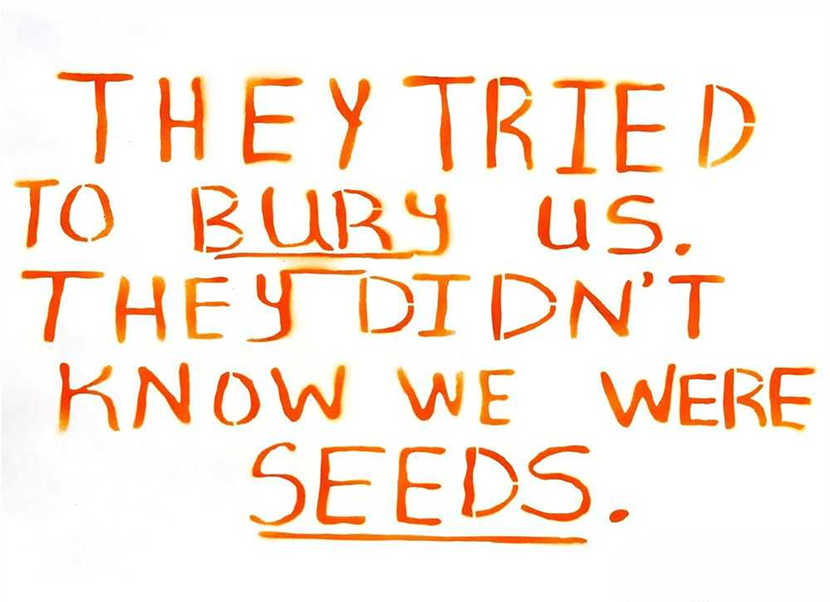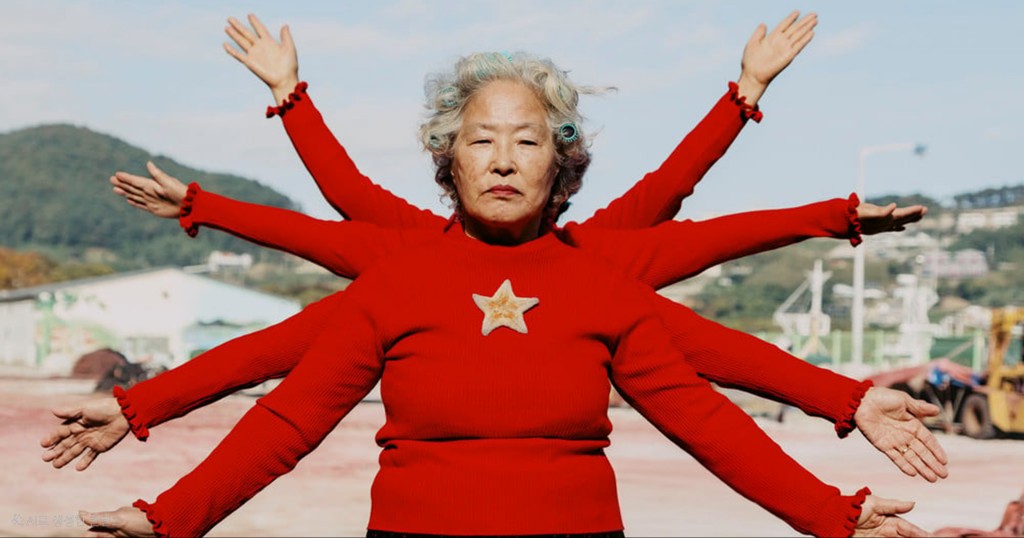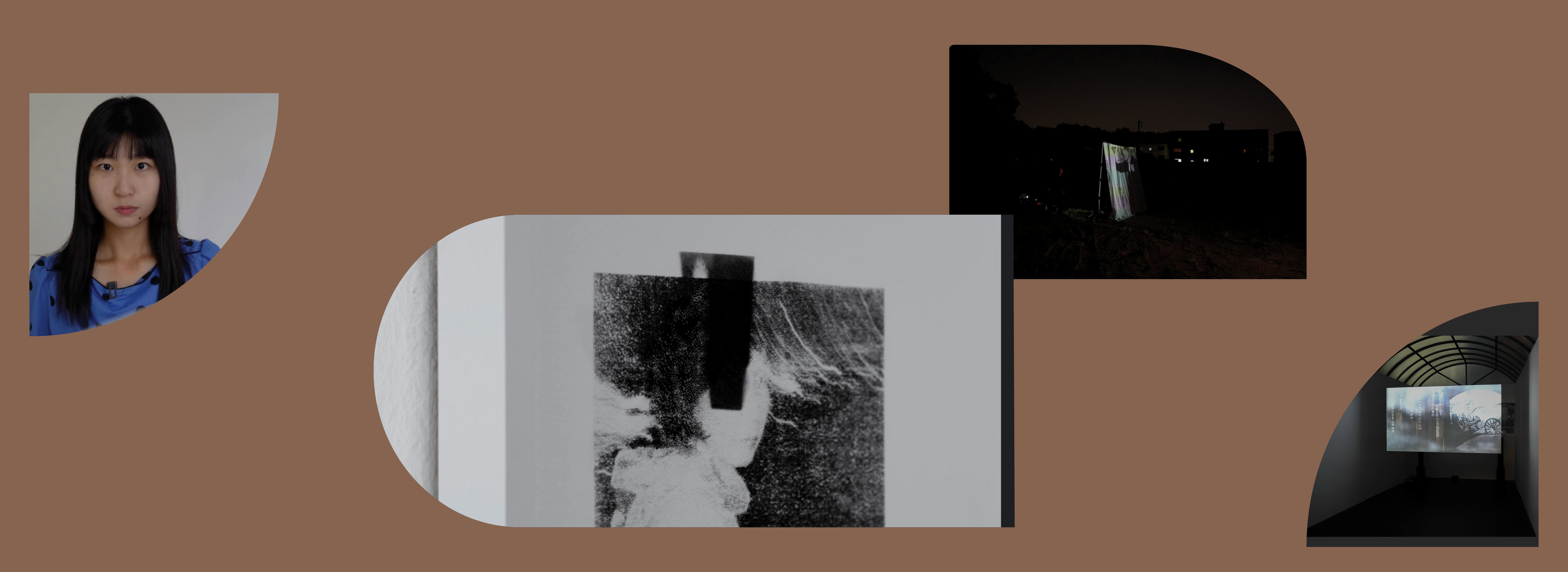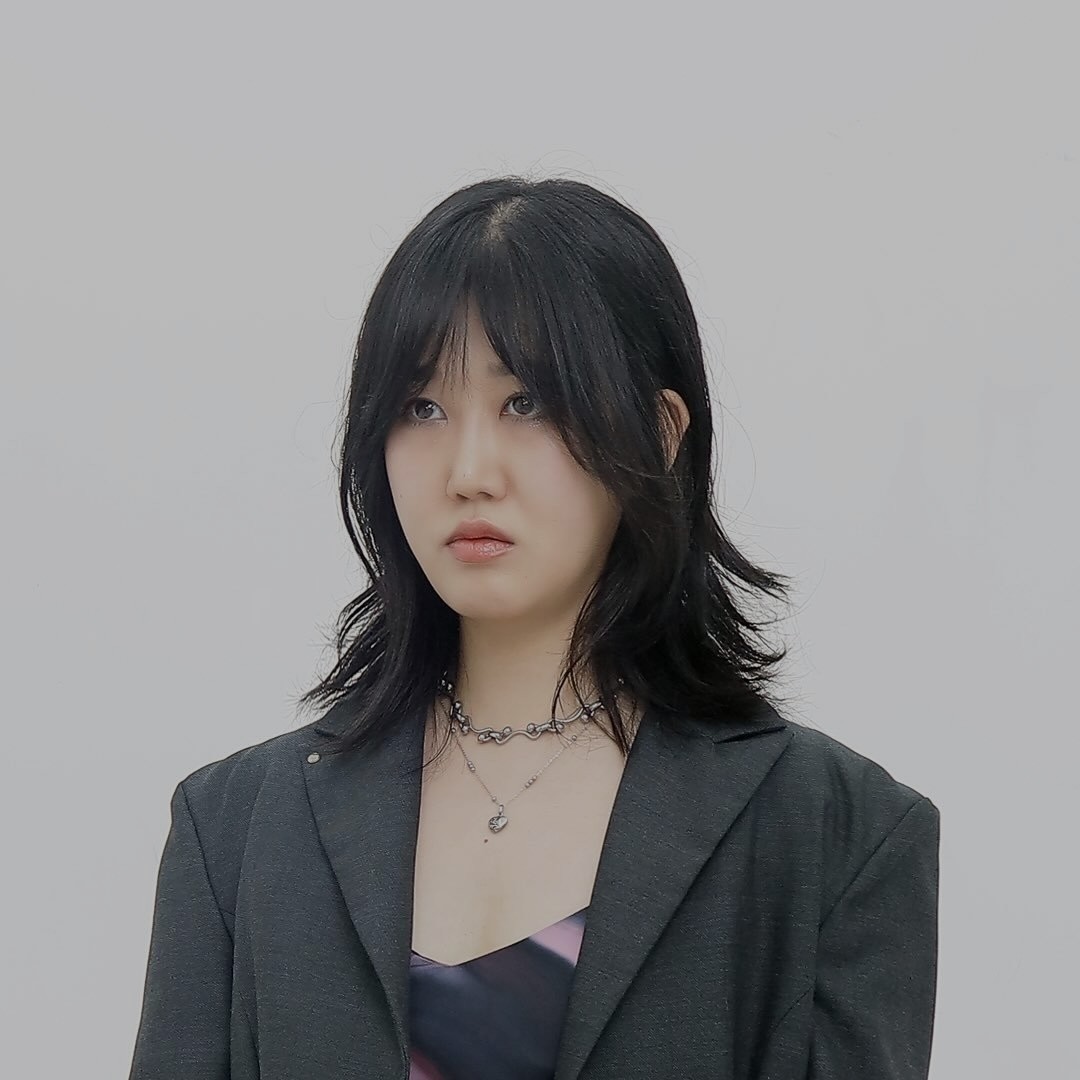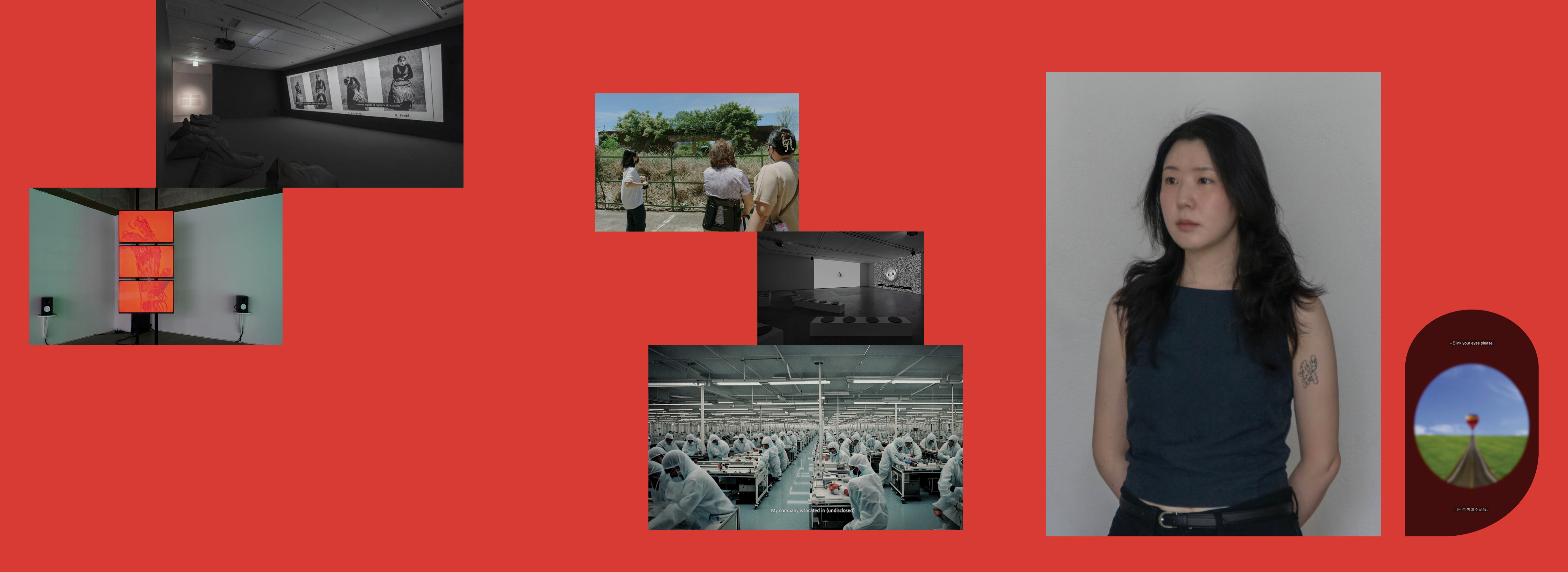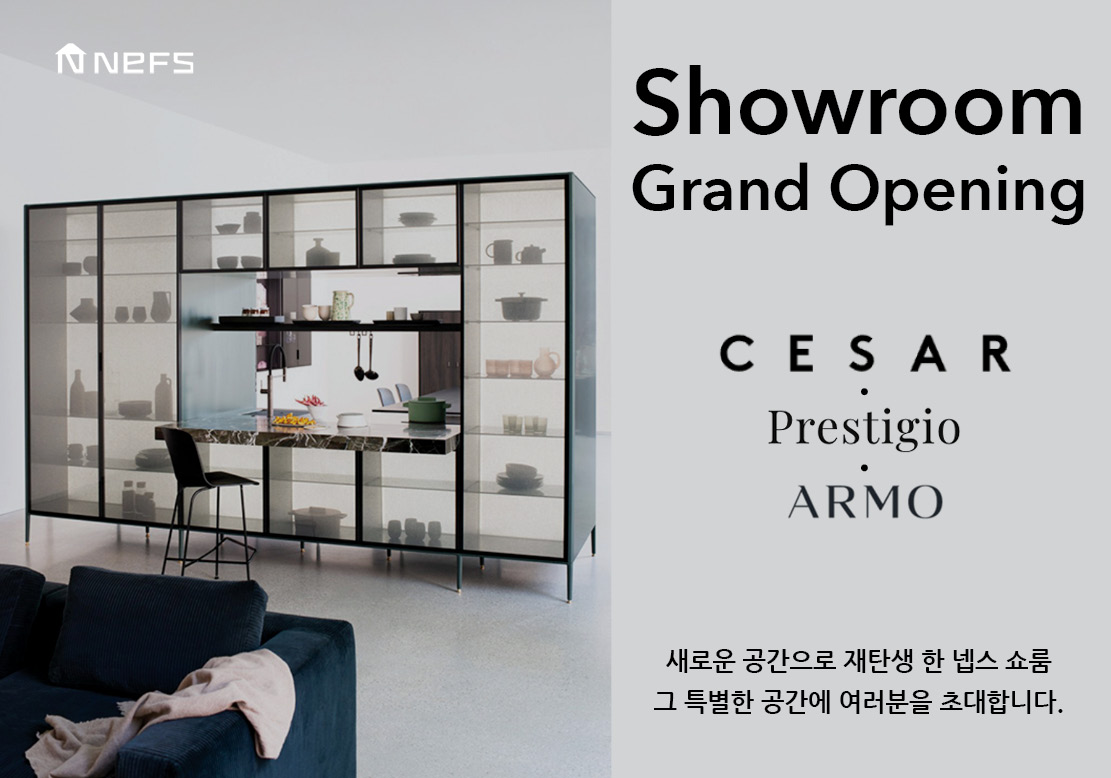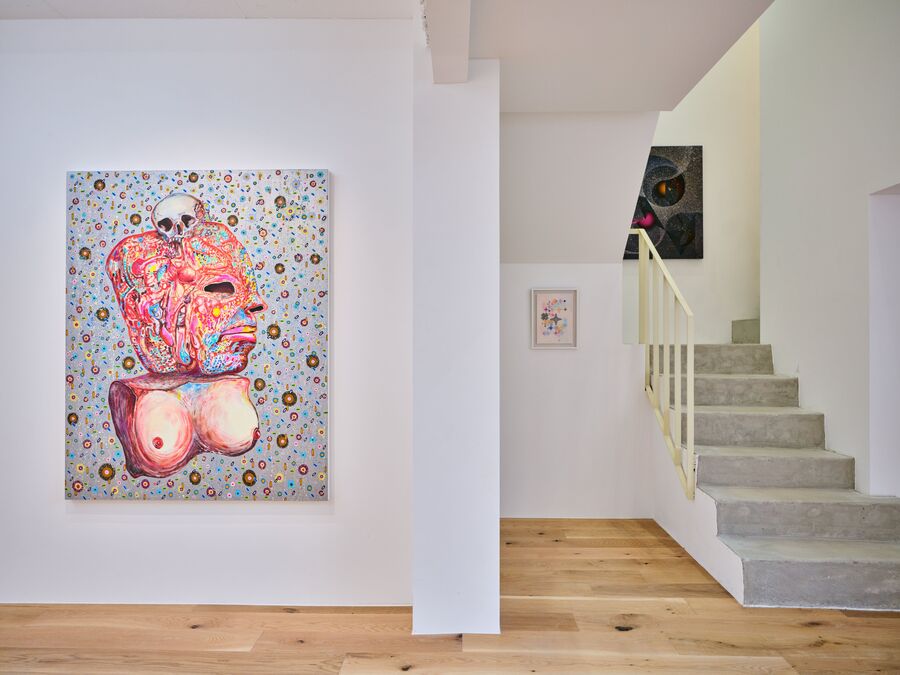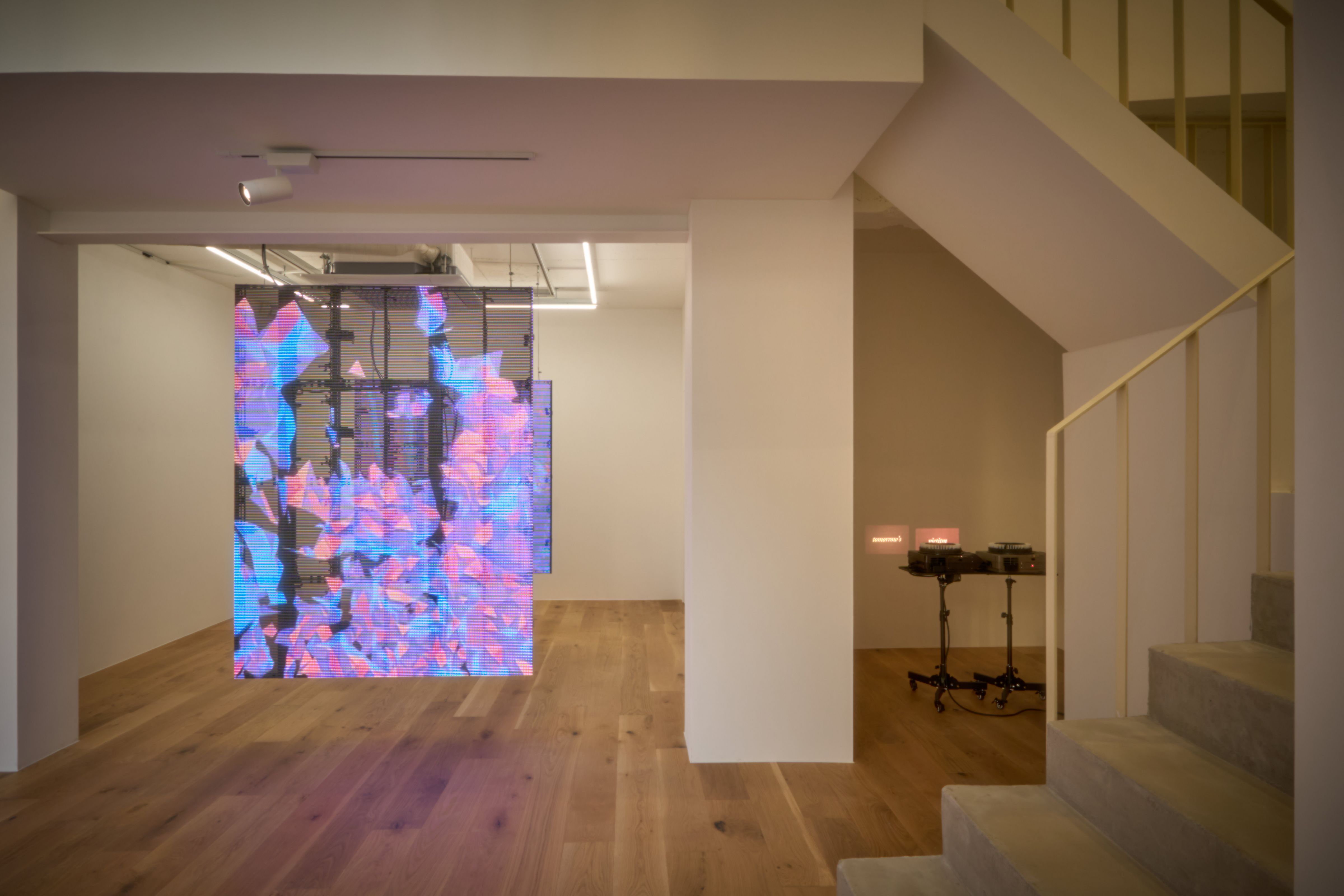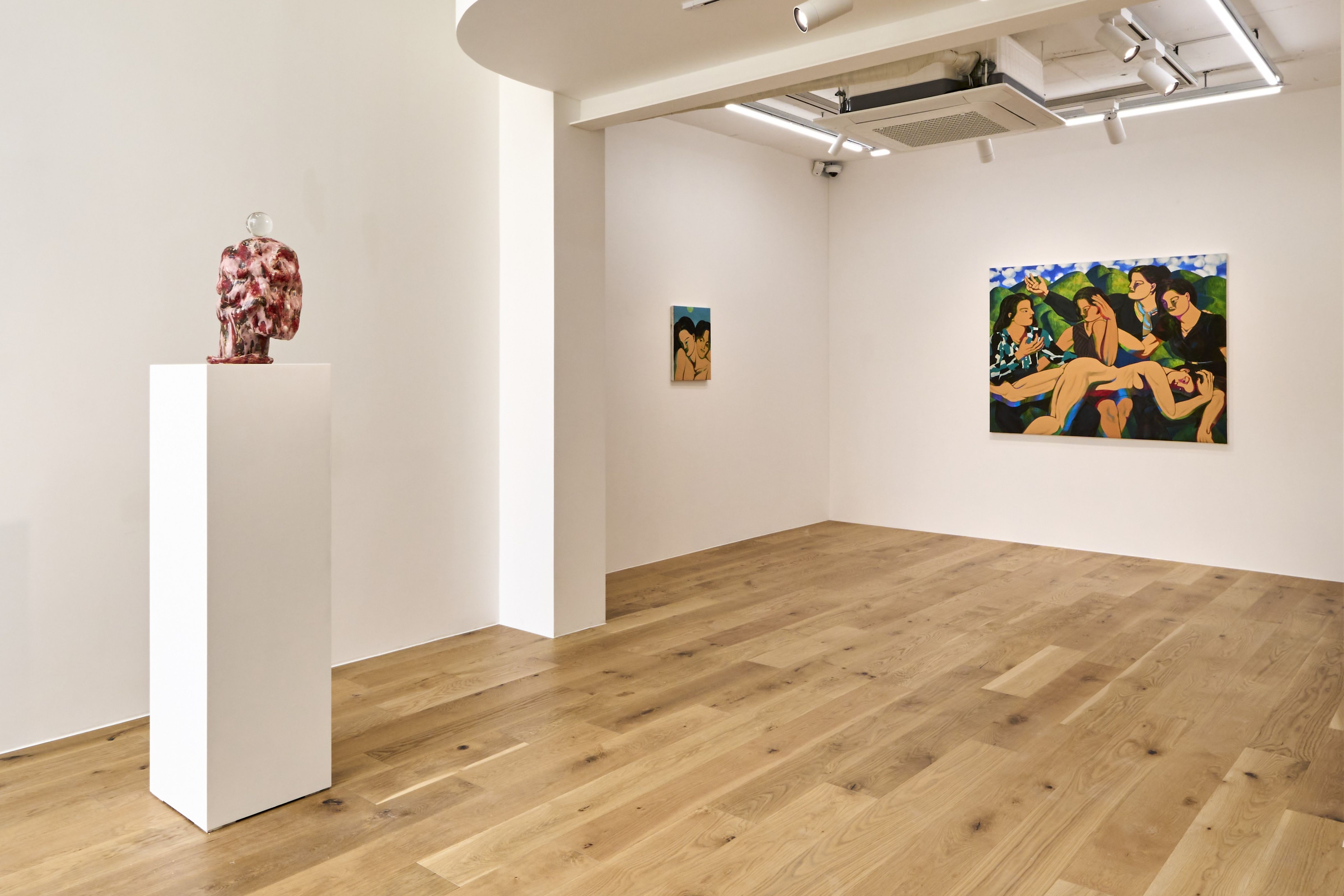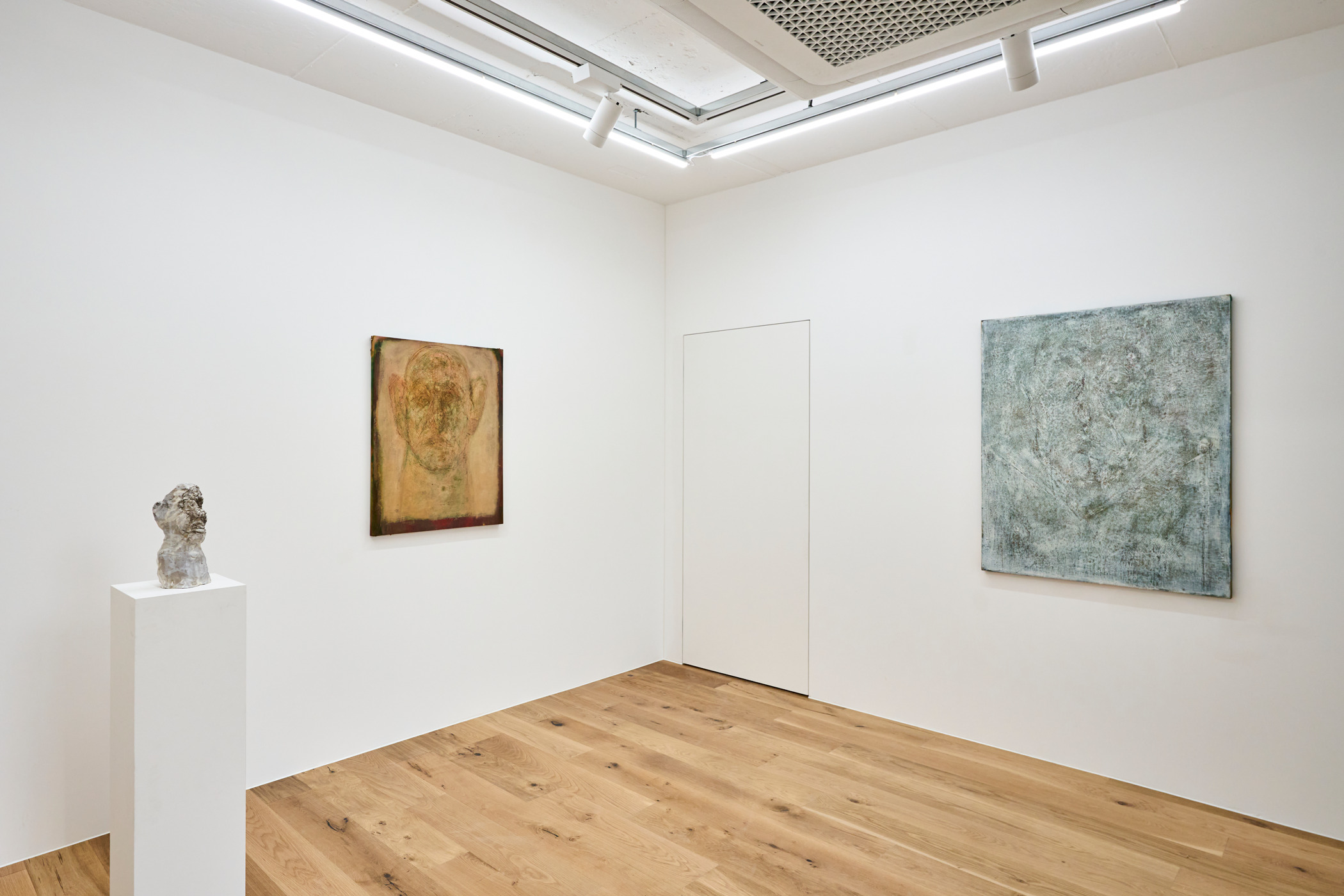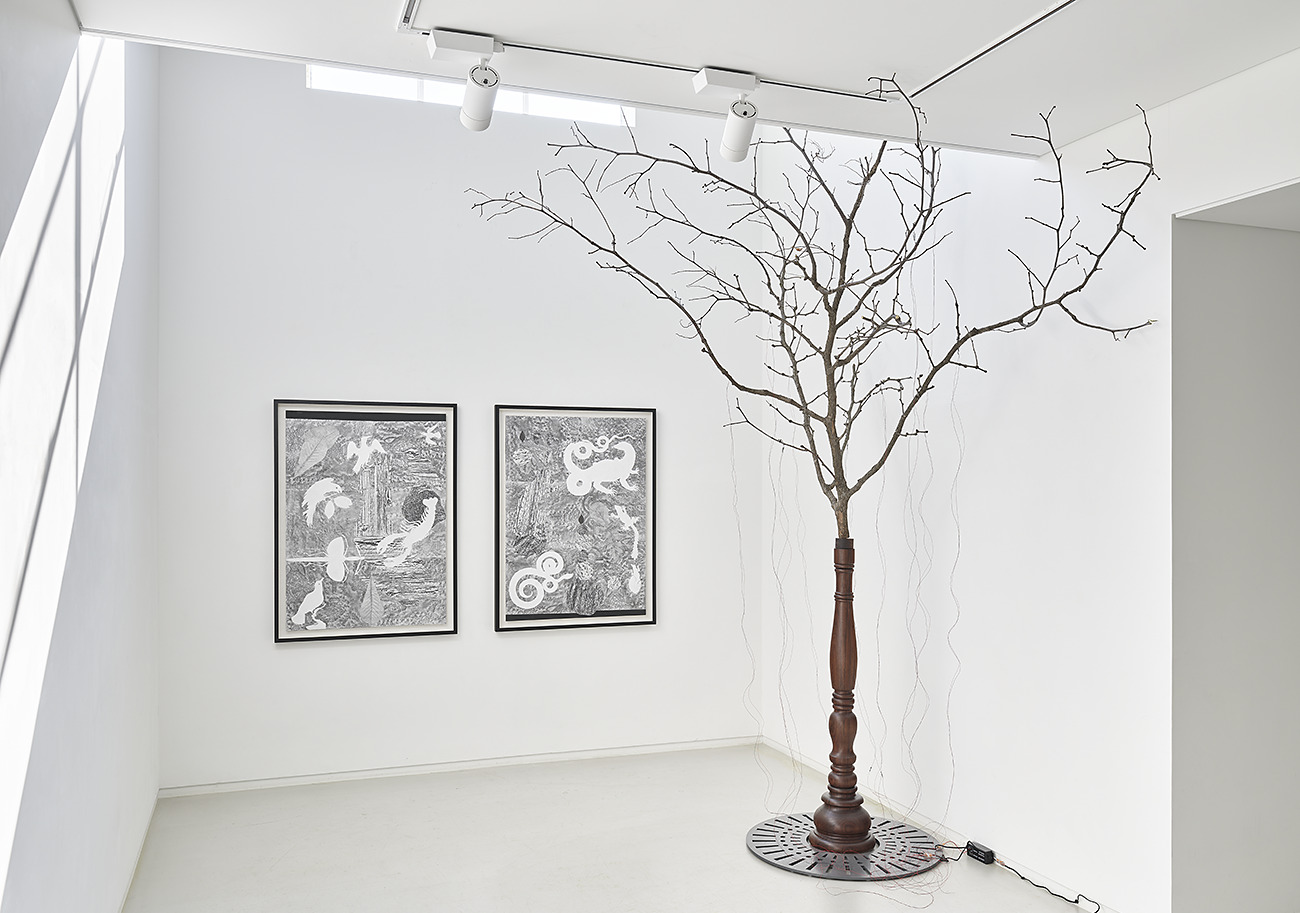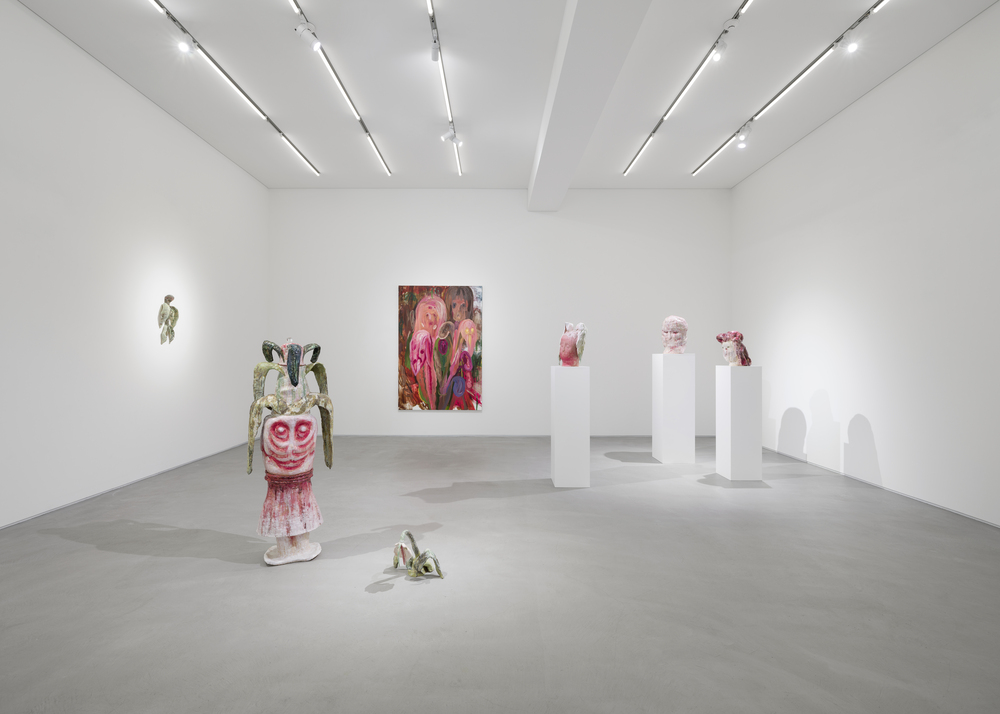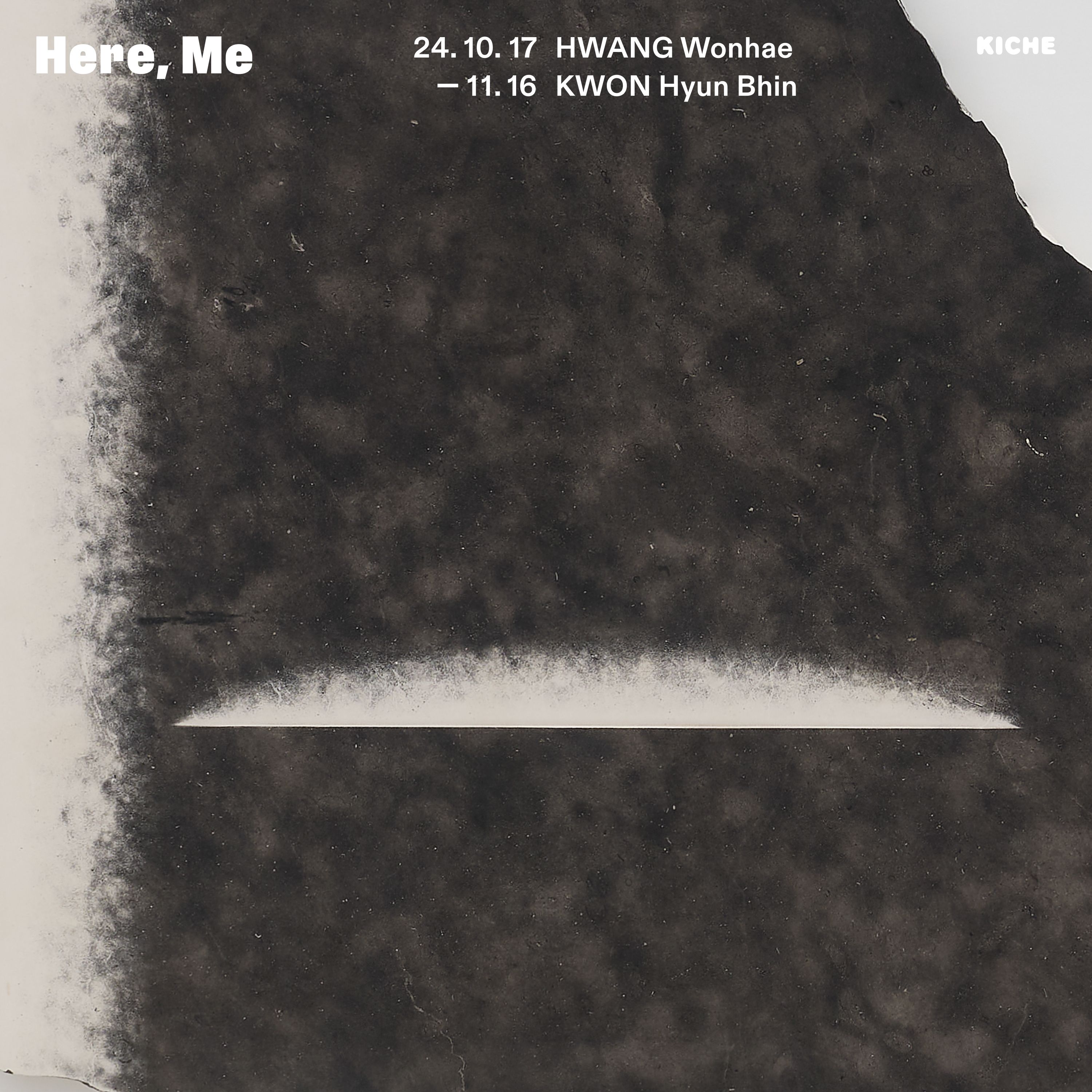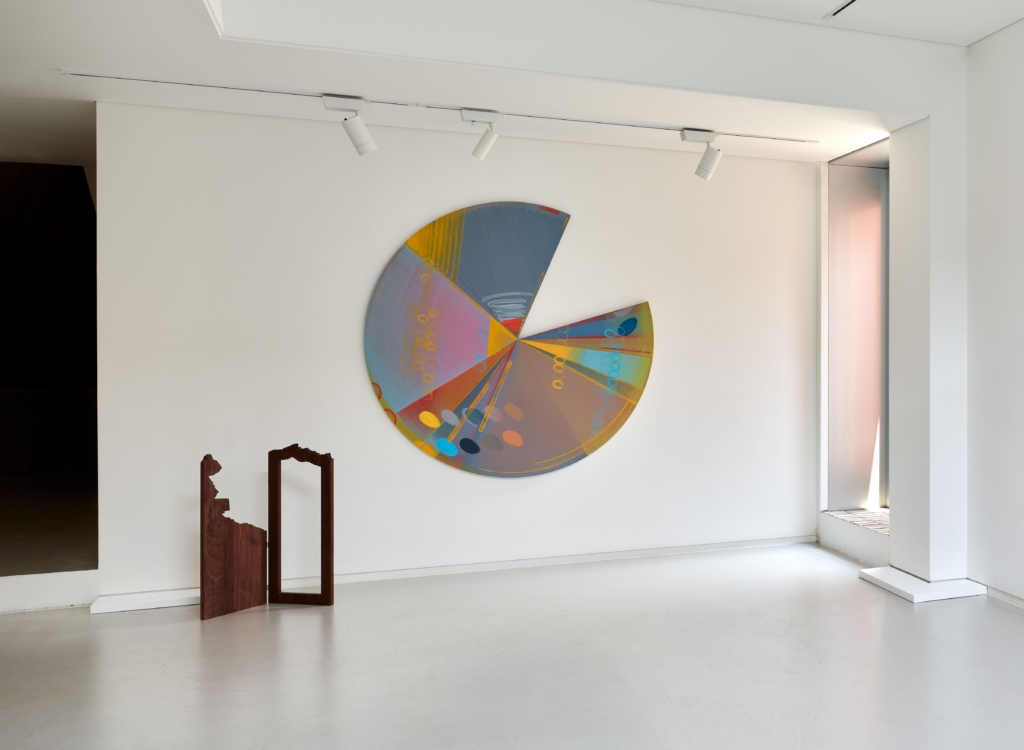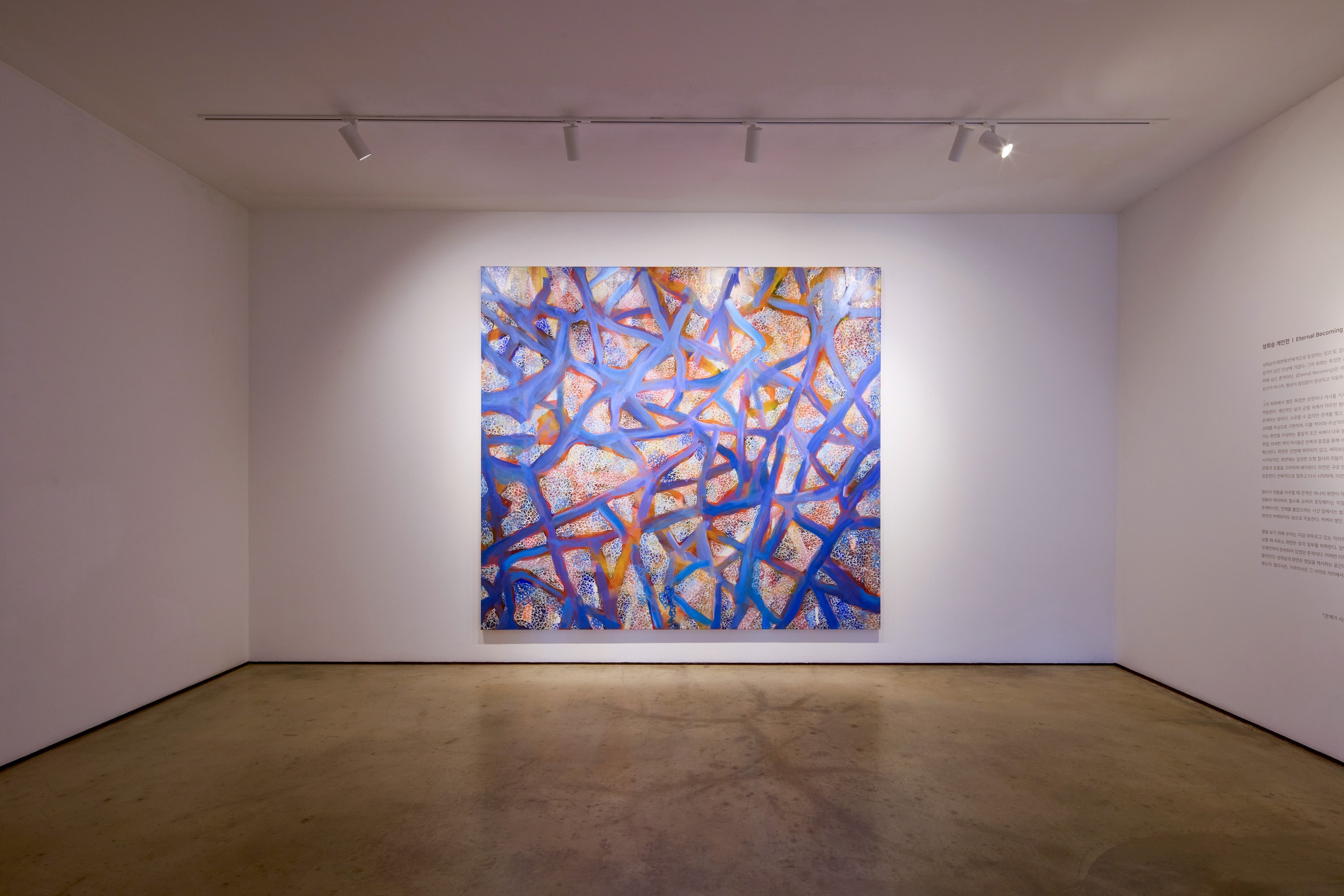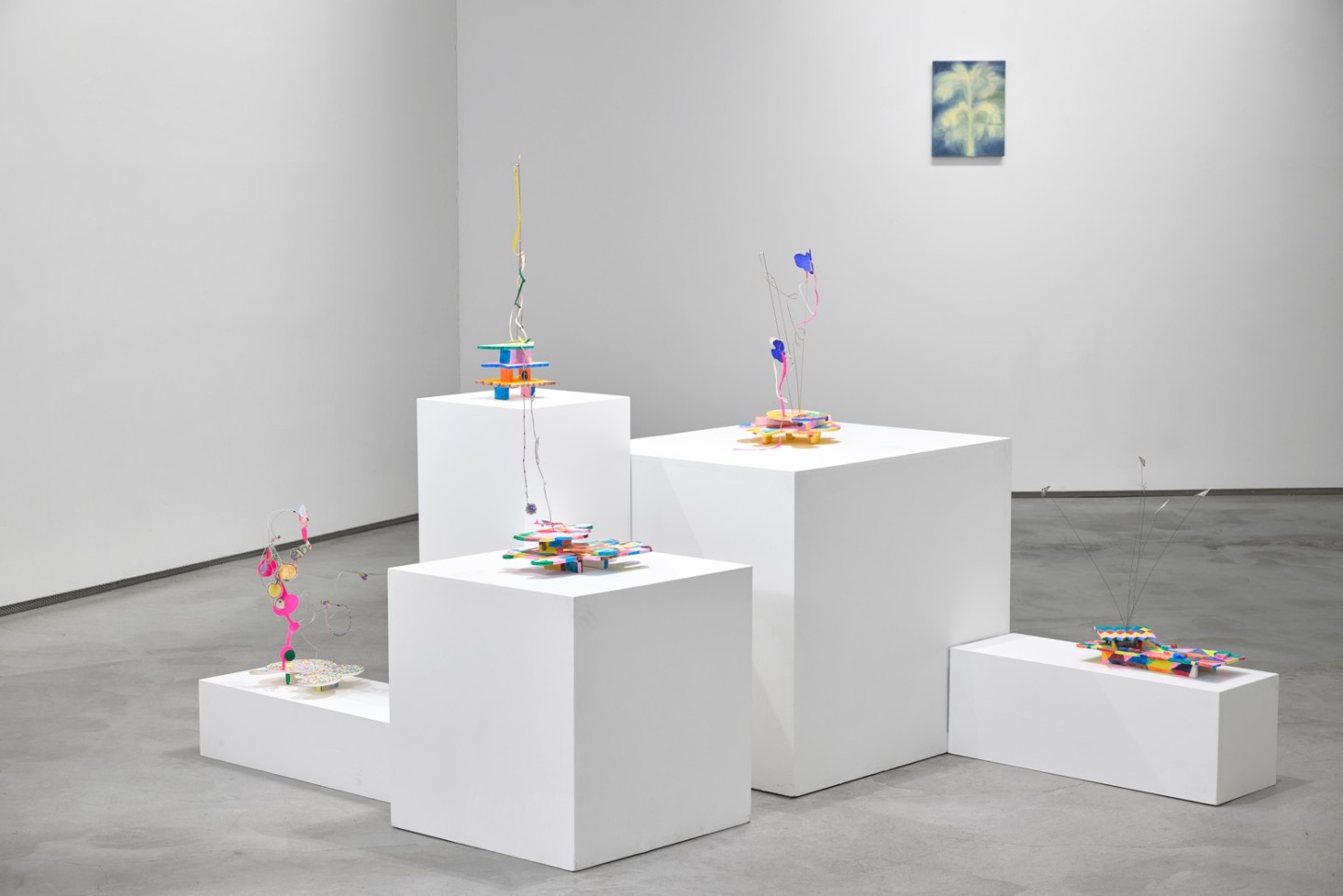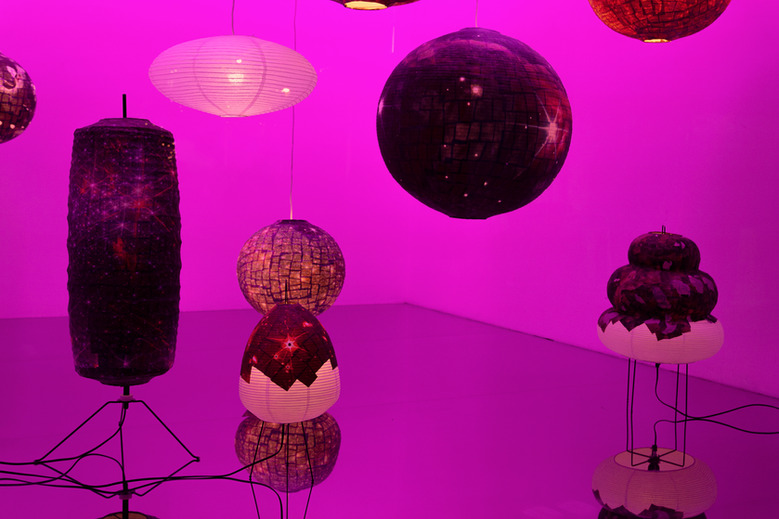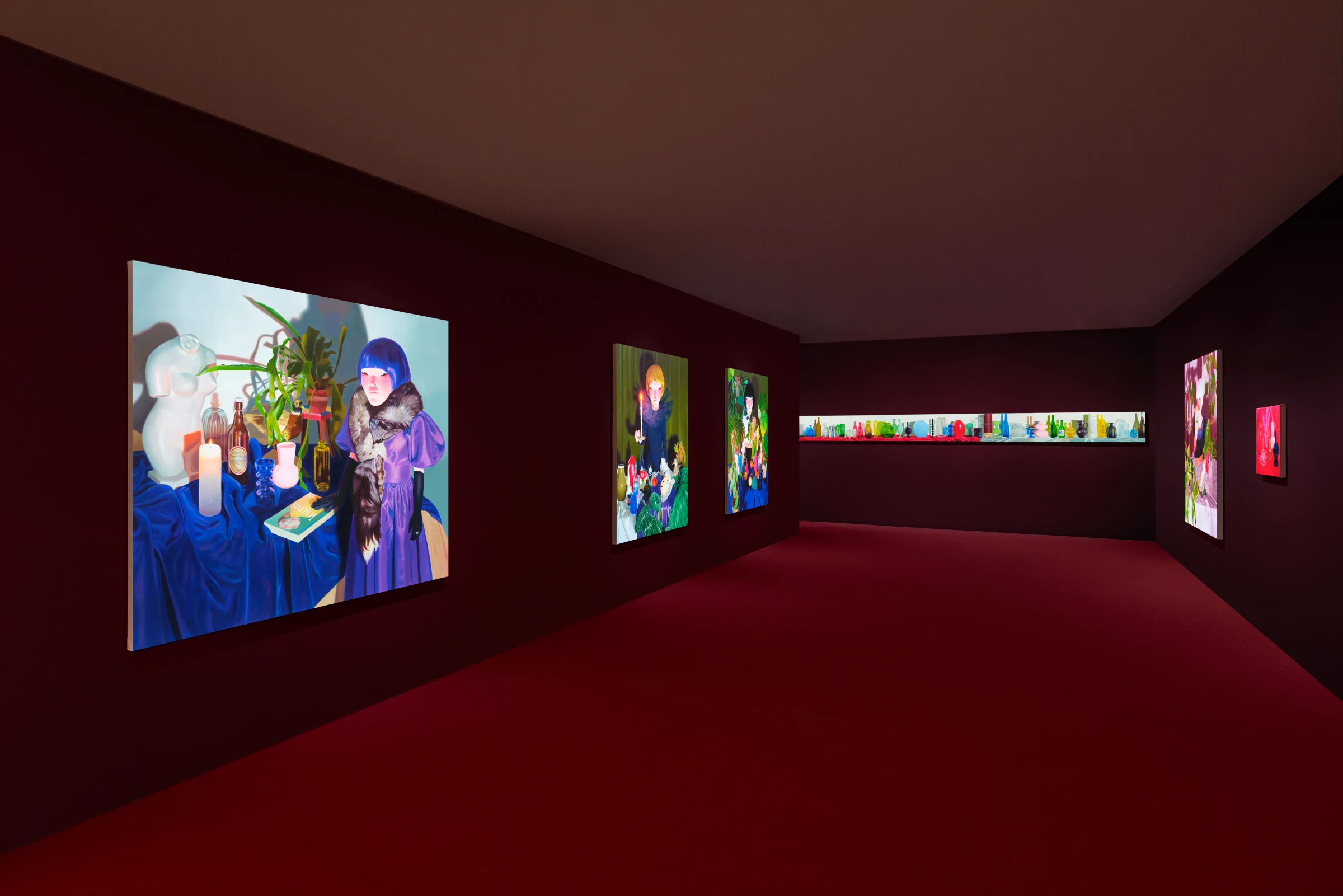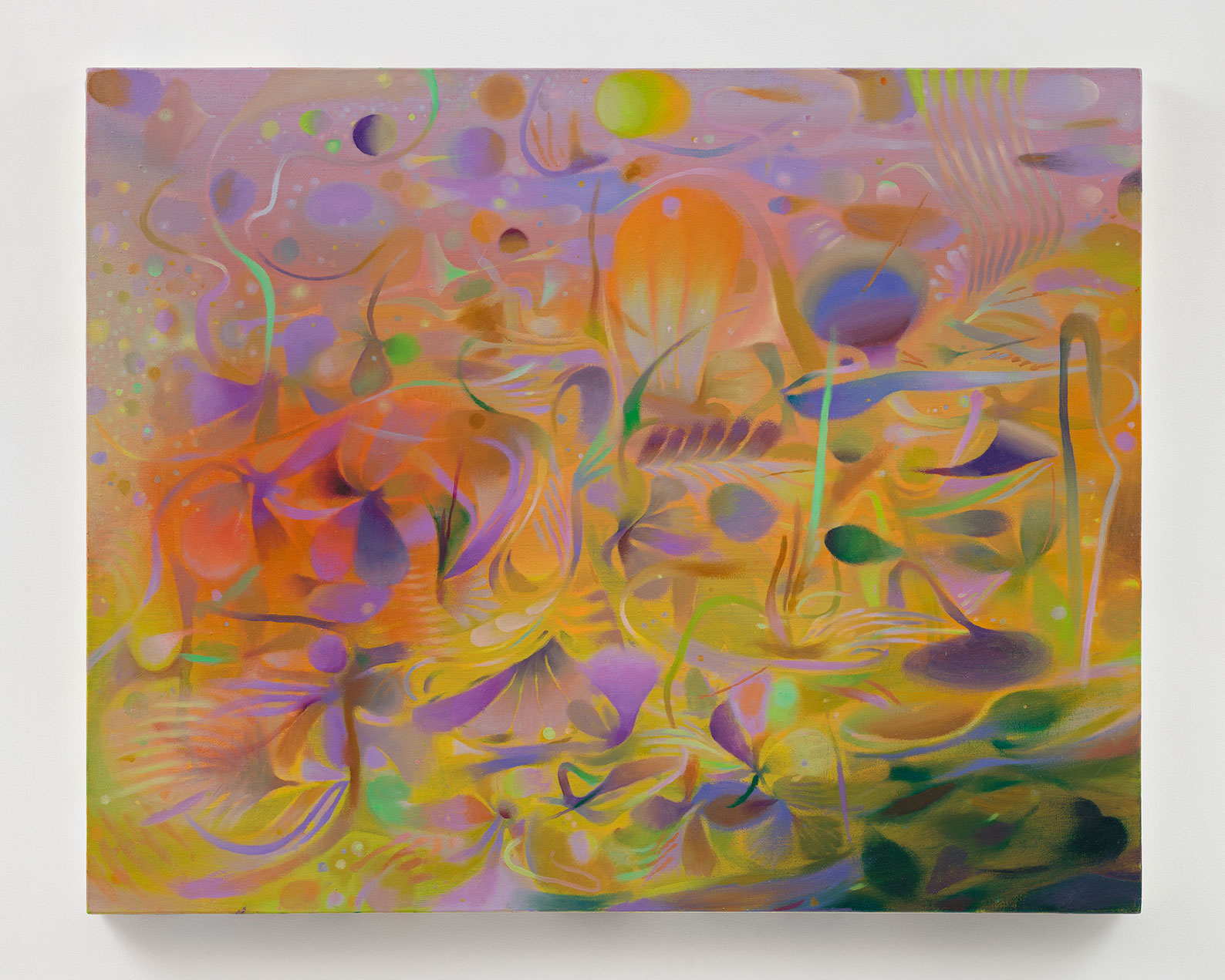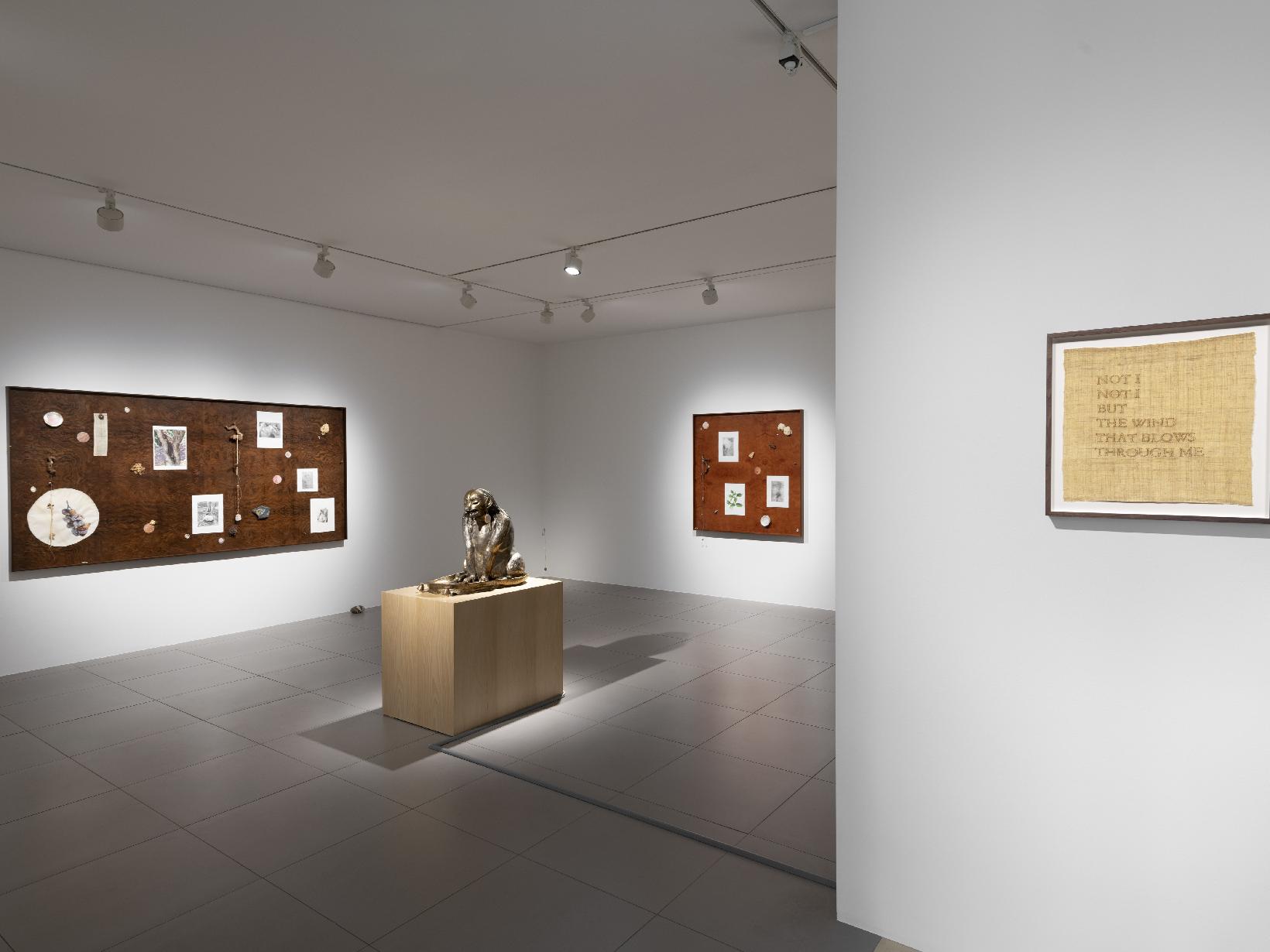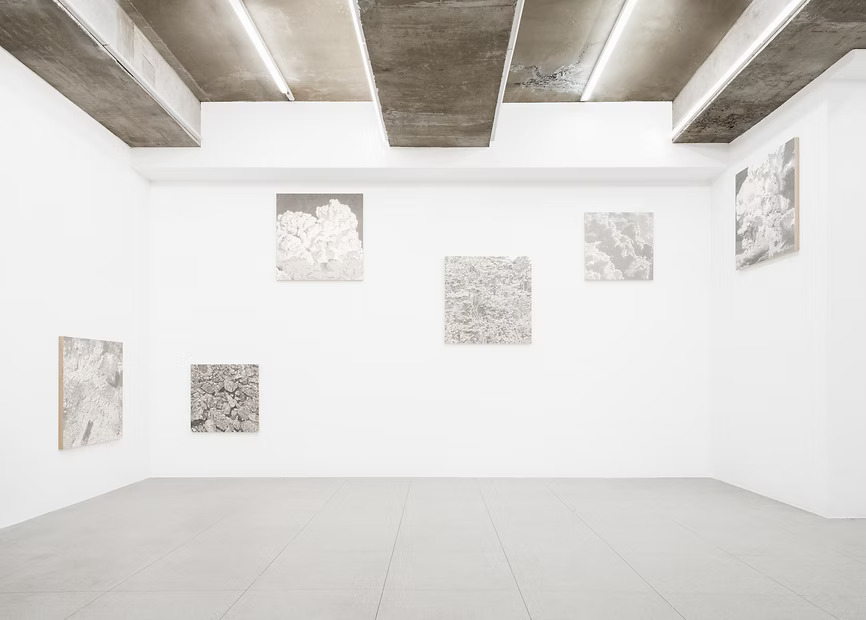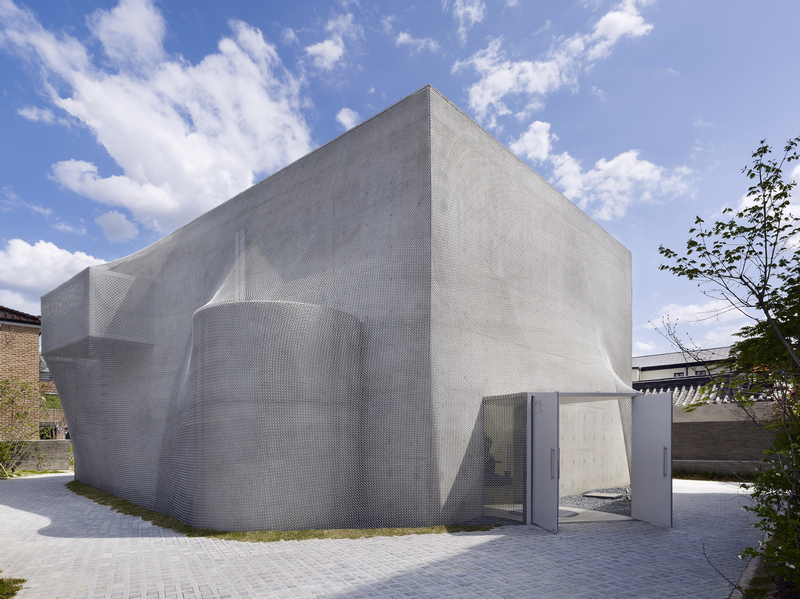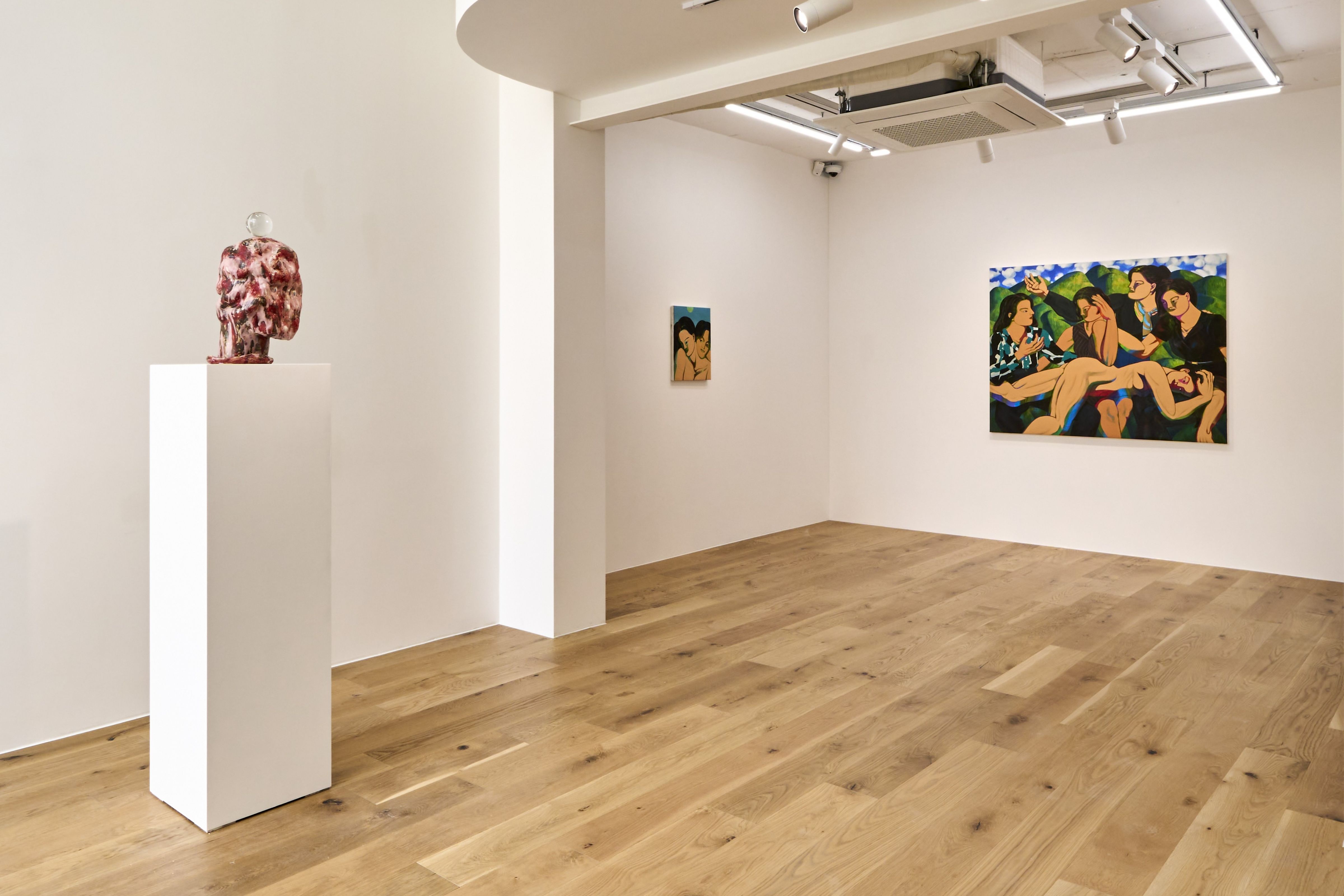 Installation
view of 《Au fond de》 ©KICHE
Installation
view of 《Au fond de》 ©KICHEKICHE presents a two-person exhibition 《Au fond de》 by Nam Kim and Myung-Joo Kim,
through November 5.
Both artists address the human figure in
their primary mediums—painting and ceramic sculpture. Their figures and bodies,
while clearly representational, often appear as bare and expressionless
individuals (or groups), as faces with skin melted away, or as body parts
severed from the whole. Any concrete details that might offer clues to the
identities of the figures or the scenes are consciously excluded.
This exhibition draws attention to how both
artists highlight their chosen mediums and distinctive techniques, yet do not
treat form as an end in itself, but rather as a means of guiding us into the
depths of the inner self.
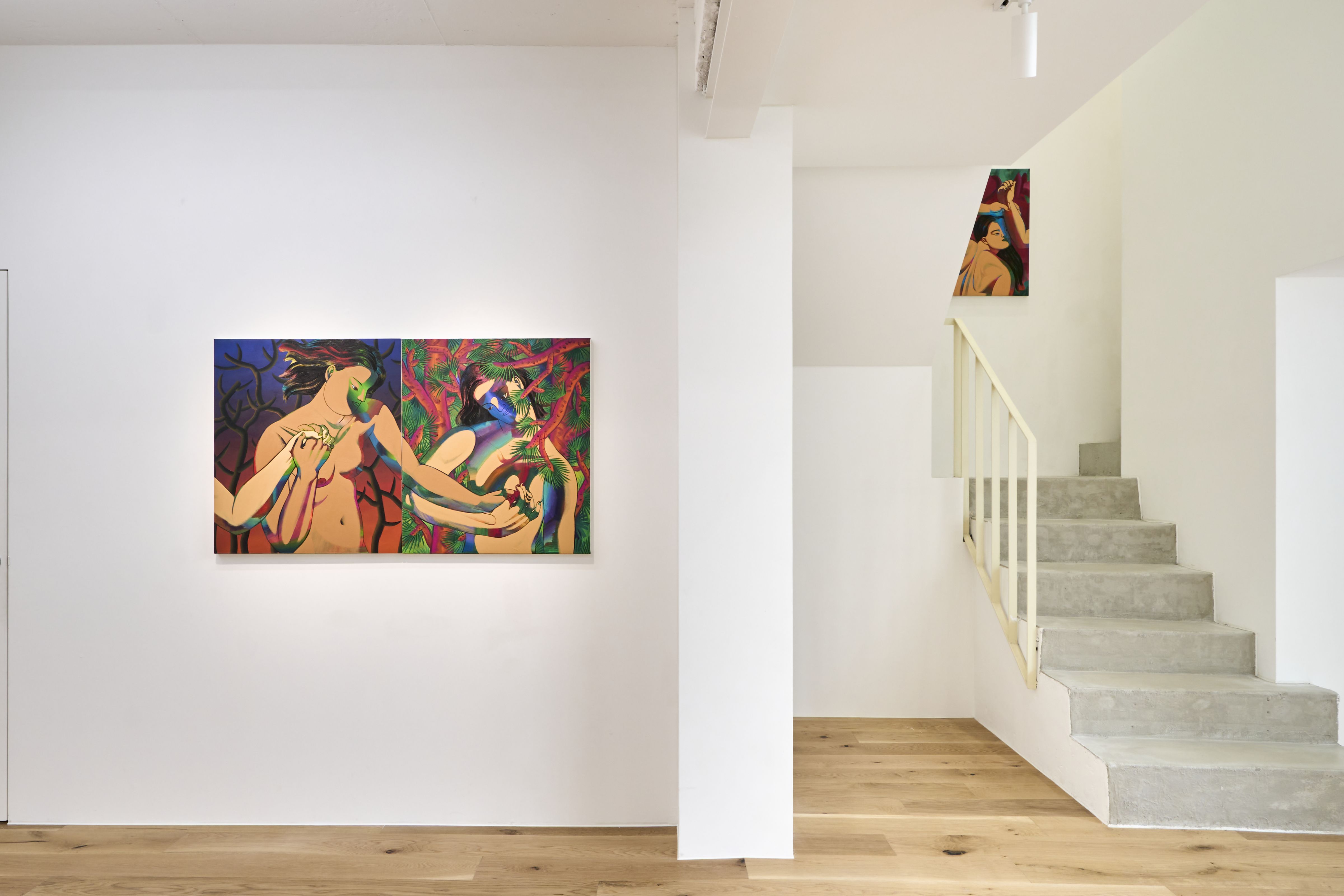 Installation
view of 《Au fond de》 ©KICHE
Installation
view of 《Au fond de》 ©KICHENam Kim’s process begins with abstract
brushstrokes. As she fills the canvas while following the flow of inner
emotions and thoughts, figures gradually emerge, spreading across the surface
like an ink drop dispersing in water, as he describes it. In depicting the
crowd surrounding a central figure, she draws inspiration from the humor
(“iksal”) found in both Joseon-period folk paintings, such as those of Hyewon,
and medieval European religious paintings, making this a central axis of her
practice.
Through bright, primary-colored, nude, and
intermediary bodies, she strips away the socio-cultural layers that encase an
individual—culture, race, gender—and probes the essence of being human itself.
This inquiry is deeply connected to her own experience: born and raised between
the United States and Korea, later settling as an artist in Vienna, she has lived
between unfamiliar environments, encountering confusion, and discovering and
accepting her identity within that heterogeneous diversity.
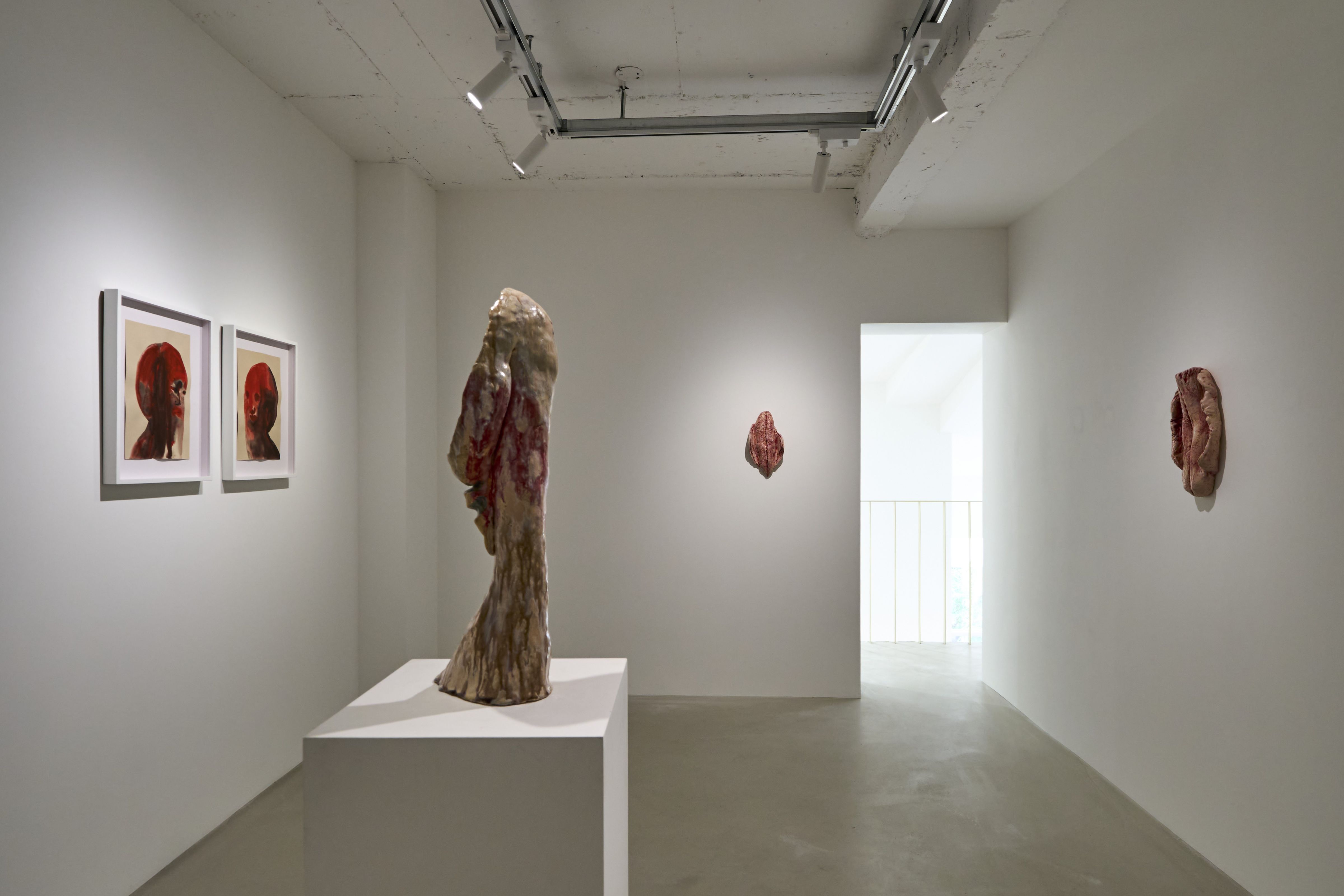 Installation
view of 《Au fond de》 ©KICHE
Installation
view of 《Au fond de》 ©KICHEMyung-Joo Kim’s faces with melted skin and
bodies adrift like bloodied fragments are “water-shadows” of her inner self.
They bare, unmediated, the emotions of loss and isolation that linger deep in
the heart from lived human entanglements.
Her production process outwardly follows
the general procedure of ceramic sculpture: shaping clay into faces, bodies,
plants; drying them in the shade; glazing; and firing them in an electric kiln
multiple times until achieving the desired form and sensibility. Yet her
practice resists polished completion. Instead, she persistently pursues the
imperfect forms that collapse and melt under heat exceeding 1,000 degrees,
through a repetitive process.
Alongside her ceramic works, she engages
intermittently in drawing and painting, exploring how the same emotions and
sentiments manifest differently depending on medium, material, and technique.
Her gouache drawings, in particular, serve as a means of revealing feelings raw
and immediate, unlike her ceramics or paintings that require lengthy working
time.



